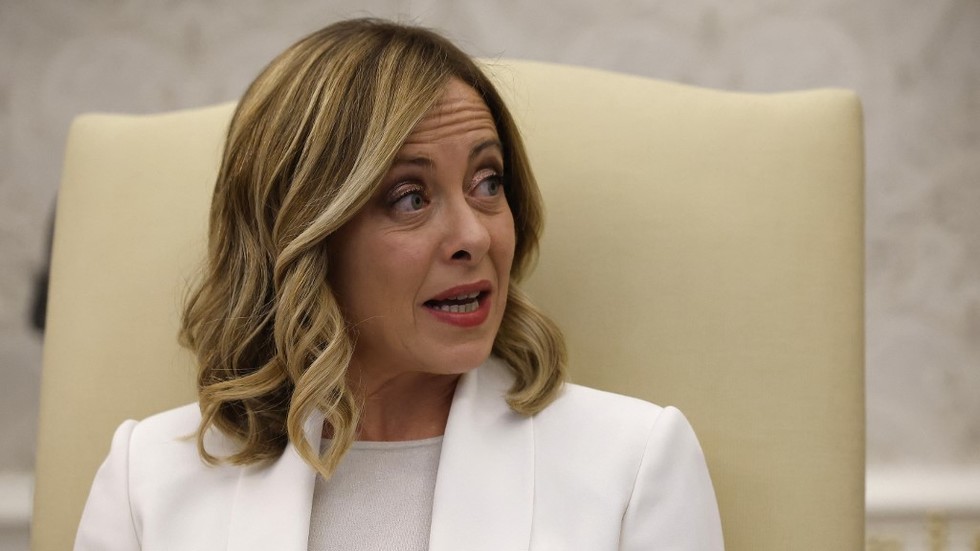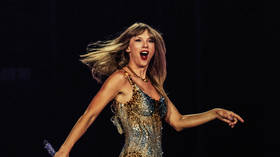
Giorgia Meloni has sued two men accused of pasting her head onto a porn star’s body

Giorgia Meloni delivers remarks during a meeting with US President Joe Biden at the White House in Washington DC, March 1, 2024 © AFP / Chip Somodevilla
Italian Prime Minister Giorgia Meloni is seeking €100,000 ($108,650) in damages from two men accused of digitally inserting her into pornographic videos that were “viewed millions of times” online.
A court in Sardinia on Tuesday called Meloni to testify against the men in July, Italy’s ANSA news agency reported. The suspects are accused of defamation, and face criminal charges as well as Meloni’s civil suit.
According to Meloni’s lawyers, the men – a 42-year-old and his 73-year-old father – superimposed the prime minister’s face onto a porn actress’ body and posted several explicit videos to an American porn site. ANSA states that the videos “stayed online for several months and were viewed millions of times by users from around the world.”
The videos were created before Meloni became prime minister in 2022, and the alleged suspects were arrested in 2020, after police identified and tracked down the mobile devices used to post them online.

Read more
The eldest suspect has asked to be sentenced to community service in order to settle the criminal component of the case, ANSA reported. A judge will decide on his request next week.
Meloni’s lawyer, Maria Giulia Marongiu, told the BBC that the sum of €100,000 is “symbolic,” and would be donated by Meloni to charities supporting victims of domestic abuse. She filed her lawsuit to “send a message to women who are victims of this kind of abuse of power not to be afraid to press charges,” Marongiu said.
The term ‘deepfake’ is used to describe highly realistic photos or videos that have been digitally altered – or created from scratch with artificial intelligence – to depict people, typically celebrities or public figures, saying or doing things they never did. US intelligence agencies have warned that deepfake technology could be used to influence elections or help cybercriminals gain access to sensitive information, while the Indian government has threatened tech companies with legal penalties after a slew of deepfake videos featuring actresses and politicians caused a public outcry last year.




